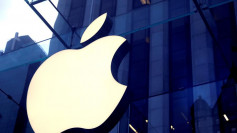Apple Inc. commenced 2024 with a tremor felt across the financial world as its shares fell by 3.58% to $185.64/ADS, erasing approximately $107 billion (or 7,660 billion RMB) from its market value. This nosedive on January 2 marked Apple's most precipitous one-day drop since August of the previous year, with a midday trading dip that briefly touched a 4.5% decline.
Barclays Bank's downgrade was a significant catalyst for this downturn. Led by analyst Tim Long, the bank shifted Apple's rating to "underweight" and trimmed the target price from $161 to $160, signaling an expected further slide of about 17% from the closing price on the preceding Friday. Long and his team pointed out Apple's underperformance in several quarters over the past year, despite its stock outshining many others. They cast doubts on the upcoming iPhone 15's ability to reverse this trend and expressed reservations about the appeal of future models, making it the first "underweight" rating for Apple by Barclays since 2019.
Despite a robust 50% rise in stock value in 2023 and a fleeting brush with a $3 trillion market valuation, Apple has faced four consecutive quarters of declining revenue, stoking investor concerns about its sustained growth. Its third-quarter revenue for the previous year dipped to $89.498 billion, with a 5.32% year-over-year decline in product revenues. Particularly, iPad and Mac sales underperformed, with the iPad's market share in mainland China shrinking from 38% to 31% year-over-year, as reported by Canalys.
Nonetheless, not all market observers are pessimistic. Daniel Ives of Wedbush Securities stands out with a bullish stance, predicting Apple's market value to escalate to $4 trillion by year-end. His target price of $250 per share is the loftiest on Wall Street, significantly above the average estimate.
Amid these mixed signals, Apple is not standing still. The tech giant is gearing up for the U.S. launch of its Vision Pro, a new product category following its smartwatch. Garnering significant attention for its innovative interactivity and sophisticated hardware, the Vision Pro's performance post-launch will be a critical factor in Apple's stock trajectory. Reports suggest that Apple's Chinese factories are ramping up production to meet an end-of-January customer availability, with retail sales expected in February. Furthermore, Apple is developing VisionOS, the next iteration of the device's operating system, signaling a deep commitment to this new venture.
However, Erik Woodring from Morgan Stanley cautions that the Vision Pro's success is more dependent on its long-term potential rather than immediate performance in 2024. This underscores a broader challenge for Apple: to reignite demand for its core products like smartphones and laptops amidst market skepticism and intense competition.
In conclusion, Apple's journey through 2024 appears fraught with challenges and uncertainties. With its market value taking a significant hit, the world watches closely as the tech behemoth navigates downgrades, product launches, and evolving consumer expectations. The outcomes of these efforts will likely reverberate far beyond the hallowed halls of Cupertino, impacting the broader tech industry and investment landscape. As Apple strives to regain its footing and drive growth, the coming months will be critical in shaping the company's future and its standing in the global market.






